People
Meet the team working and collaborating with the Schnell Lab. Our team embodies physiologists, biophysicists, engineers, and mathematical scientists, working on lively and multidisciplinary teams with other research groups within the university, the USA and abroad.
If you are interested in joining the lab, please visit this page.
Principal Investigator
Santiago Schnell

- 215 Jordan Hall of Science
- EA
- Lisa Mercurio
- Book appointment
- santiago.schnell@nd.edu
- Ph
- (574) 631-6456
Education
Lic., Biology, Universidad Simón Bolívar, 1997
D.Phil., Mathematics, University of Oxford, 2003
Biography
Santiago Schnell is the William K. Warren Foundation Dean of the College of Science and Professor of Biological Sciences at the University of Notre Dame. He is also Professor in the Department of Applied and Computational Mathematics and Statistics. Dr. Schnell's research program departs from the premise that there is a continuum between health and disease; if we are capable of measuring this continuum, we will be in the position of detecting disease earlier and understanding it better to intervene more precisely. His research focuses on two broad areas: (i) the development of standard-methods to obtain high quality measurements in the biomedical sciences and scientometrics, and (ii) the development of mathematical models of complex biomedical systems with the goal of identifying the key mechanisms underlying the behavior of the system as a whole.
Dr. Schnell is currently member of the "Standards for Reporting Enzymology Data" (STRENDA) Commission. Prior joining the University of Notre Dame, he served in a number of leadership positions at the University of Michigan, Indiana University, and international academic societies and coallisions. He has received numerous national and international awards for his research, service and teaching contributions.
Links
Graduate Students
Isabella Gimon
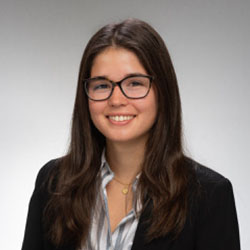
- 328 Galvin Life Science Center
- igimon@nd.edu
Education
BS., Biology & Applied Sciences (major)
Computer Science & Chemistry (minor), Florida International University, 2021
Biography
Isabella Gimon is a graduate student in The Integrated Biomedical Sciences Graduate Program at the University of Notre Dame. She is using rule-based and agent-based models to study protein aggregation. Protein aggregation has been correlated with many neurodegenerative diseases such as Huntington's disease and Alzheimer's. Protein aggregation may begin at a conformational state or by a monomeric protein. The outcome is extremely deleterious for any organism since it prevents a protein from acquiring its functional state. Rule-based models uses a set of rules translated into, among other things, a set of ordinary differential equations. Over the last decade, both types of models have had a far-reaching effect in the biomedical sciences, mainly in accommodating complex problems seen in vivo and easily reflecting those in a model. Using rule-based models to study protein aggregation, Isabella is investigating the processes that leads to aggregation.
Kashvi Srivastava
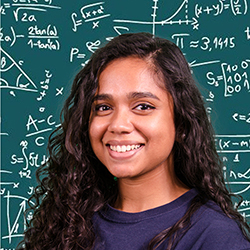
- 2867 East Hall, 530 Church Street, Ann Arbor, MI 48109
- kashvi@umich.edu
Education
B.Tech., Mathematics and Computing Engineering, Delhi Technological University, 2020
M.S., Applied and Interdisciplinary Mathematics, University of Michigan, 2022
Biography
Kashvi Srivastava is a PhD student in Applied and Interdisciplinary Mathematics and Scientific Computing at the University of Michigan. She is interested in the applications of nonlinear dynamics in chemical kinetics and neuroscience. Currently, she is working on the deterministic and stochastic modeling of critical systems in biochemistry and neuroscience. Differential equations are used to understand the time-dependent behavior of chemical and biological systems. Under certain conditions, such as presence of a singular perturbation scenario, these mathematical models can be further simplified. Since these reduced models are highly utilized in experiments for parameter estimation and other applications, it is very important to study the validity of the reductions both in the deterministic and stochastic regimes. Kashvi is working on theoretically understanding the necessary qualifiers for the validity of some widely-known reduced systems. These include the quasi-steady-state reductions of the Michaelis-Menten reaction mechanism, the irreversible auxiliary enzyme reaction and the full reversible Michaelis-Menten reaction mechanism reaction. The computational aspects of her work also include verifying these results through stochastic simulation algorithms.
Links
Personal website CV Google ScholarCollaborators
-

Mathematical Reviews
USA -

Stony Brook University
USA -
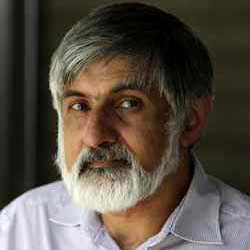
University of Oxford
UK -

University of Stuttgart
Germany -
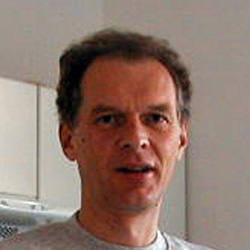
RWTH Aachen
Germany -
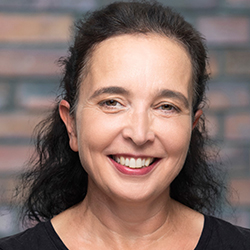
Heidelberg Institute for Theoretical Studies
Germany